 Life & Style
Life & Style

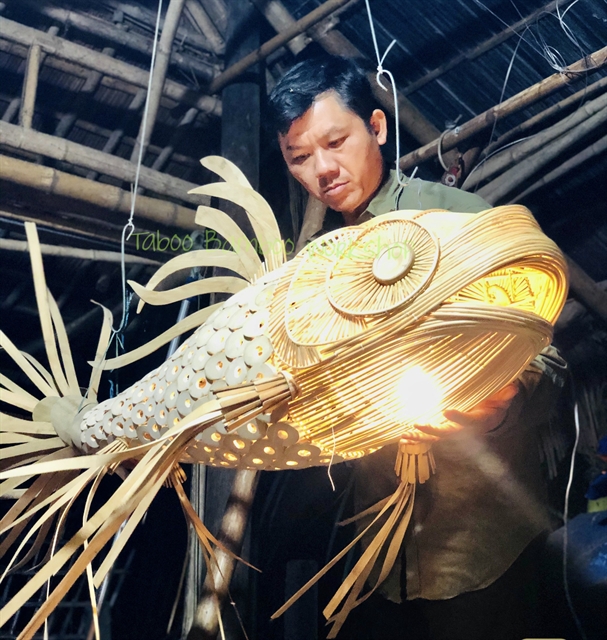 |
| Võ Tấn Tấn works on a bamboo-made Koi fish at his Taboo Bamboo workshop in Cẩm Thanh Commune of Hội An. Photo courtesy of Taboo Bamboo |
HỘI AN - Two more traditional crafts in the ancient town of Hội An – hammock weaving from tree bark strings and making houses from bamboo and nipa palm – have been recognised as national intangible heritage, adding to the heritage preservation list of the favourite tourism hub.
Nguyễn Văn Lanh, vice chairman of Hội An City’s People’s Committee [Administration], told Việt Nam News that the honour helps promote the community-based tourism and crafts in communes of Tân Hiệp in Chàm Islands, off the coast of Hội An, and Cẩm Thanh in the suburban area.
The hammock weaving craft has been part of the surge of eco-tourism on the Chàm Islands, 18km off the coast of Hội An, offering hands-on experience in weaving a hammock using strings taken from ngô đồng bark tree (Firmiana colorata).
Visitors can enjoy the craft experience at the Chàm Islands Cooperative on the second floor of Tân Hiệp Market in the centre of Chàm Islands.
Only six old skilled weavers, including four aged between 75 and 85, could make hammocks from tree bark.
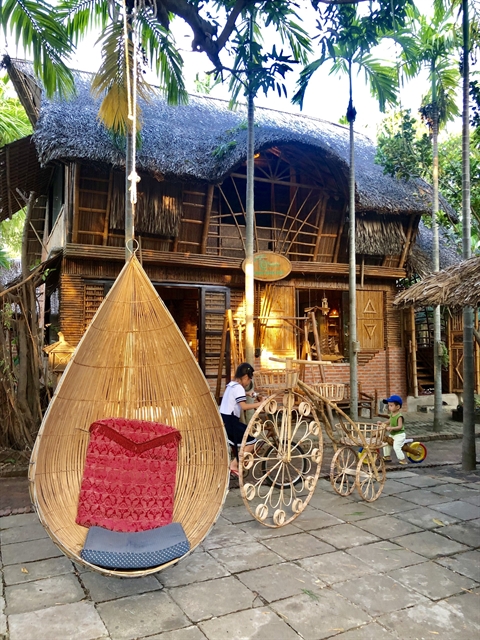 |
| A house is made of bamboo and nipa palm in Cẩm Thanh Commune. Craftsmen in the commune also weave bamboo and nipa palm into decorative items. Photo courtesy of Taboo Bamboo |
Three trees, which grew on the island for some 200 years, were honoured as Heritage Tree by the Việt Nam Association for Conservation of Nature and Environment.
The Chàm Islands-Hội An area, recognised as a world biosphere reserve by UNESCO in 2009, hosts around 400,000 tourists annually, of which 10 per cent are foreigners.
Meanwhile, Cẩm Thanh Commune, 5km away from Hội An, is home to precious nipa palm swamps in the rich ecological system of wetlands that spreads from Hội An to Cửa Đại Estuary, and on the Chàm Islands.
 |
| Water bottles are covered by bamboo. Bamboo has been selected as an environment-friendly material for sustainable development. Photo courtesy of Taboo Bamboo |
The local community has preserved the traditional craft of making houses and furniture from bamboo and nipa palm trees for generations.
Võ Tấn Tân, who owned the Taboo Bamboo workshop in the commune, and other craftsmen have turned bamboo material into sustainable and low carbon souvenirs and decorations.
He said local villagers promote innovations in making bamboo decorations as non-plastic, zero-waste and recyclable products for private houses and hotels, as well as public display.
Tân said tourists visiting the workshop can enjoy a hands-on experience creating gifts from bamboo themselves in a few hours.
The nipa palm swamps in Cẩm Thanh, which play an important role in the Chàm Islands-Hội An world biosphere reserve site as they shelter fishes and other aquatic species during breeding, are also a favourite eco-tour site after the Old Quarter of Hội An.
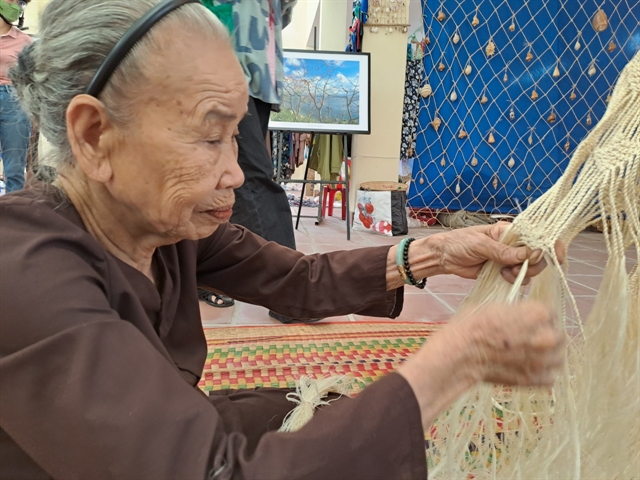 |
| An elderly craftswoman weaves a hammock from tree bark in Chàm Islands, off the coast of Hội An. The craft has been honoured as a national intangible heritage. VNS Photo Công Thành |
Hội An successfully launched community-based tourism activities such as farming, fishing, coracle rides and biking in Cẩm Thanh Commune and suburban communities around Hội An town.
Previously Hội An, a UNESCO world heritage, already received six national heritage certificates for the annual Nguyên Tiêu (full moon day of lunar January) Festival, Thanh Châu edible bird's nest, Thanh Hà Pottery village, carpentry of Kim Bồng Village, vegetable planting in Trà Quế Village, and the mid-autumn Full Moon Festival (on the 15th day of the eighth lunar month).
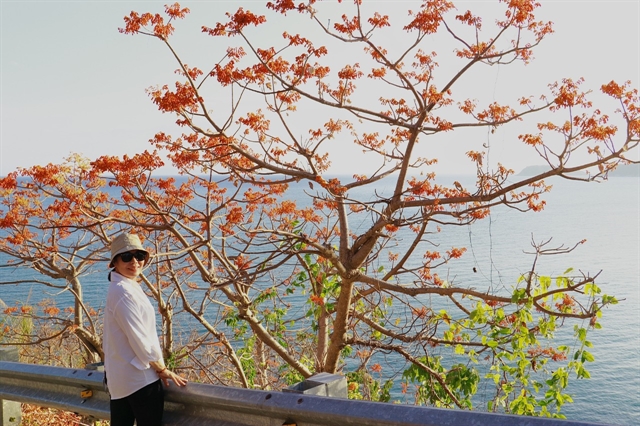 |
| A tourist poses with a 'ngô đồng' tree (Firmiana colorata) during a tour in Chàm Islands. The tree bark has been used for years to make strings to weave hammocks. Photo courtesy of GreenTour |
Last year Hội An became a member of the UNESCO Creative Cities Network (UCCN) in the Crafts and Folk Art category.
The city’s heritage preservation and management centre said there are 1,700 households and 685 small-scale enterprises engaged in crafts and the performance of folk arts in Hội An.
The Old Quarter in Hội An is often decorated with lanterns on weekends, hosting local people and foreign tourists visiting and exploring the culture and lifestyle of the old town.
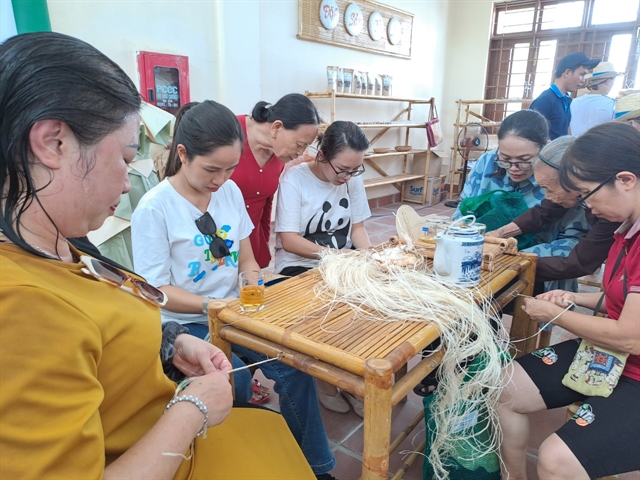 |
| Visitors try out the hammock-making craft at the Chàm Islands Cooperative in Tân Hiệp Commune of Chàm Islands. VNS Photo Công Thành |
Hội An ancient town and Mỹ Sơn Sanctuary in the central province of Quảng Nam were recognised as UNESCO world heritage sites in 1999, while Chàm Islands-Hội An was listed as the world biosphere reserve in 2009. VNS




